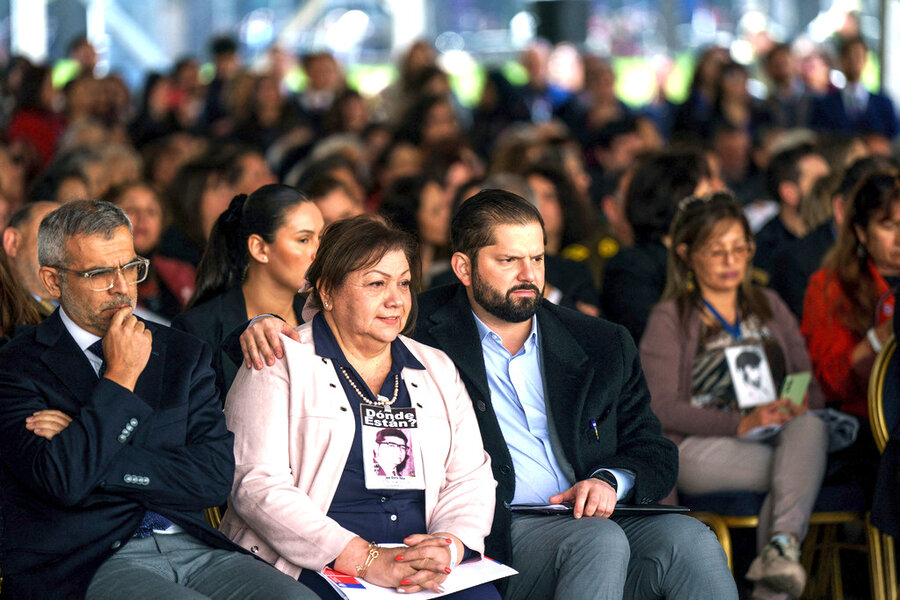Chile’s light of truth on a dark past
Loading...
Chile reached a turning point Wednesday in its long quest to seek healing after a massive injustice. President Gabriel Boric formally launched the country’s first plan to find the remains of more than 1,000 people who went missing during the 1973-1990 military dictatorship of Gen. Augusto Pinochet.
In the more than three decades since the restoration of democracy, the remains of only 307 of the disappeared have been recovered, leaving many families alone to find the truth of what happened to their loved ones. Chile’s new approach acknowledges the state’s responsibility in dismantling the lies that have insulated the perpetrators of those abuses from accountability.
“The state has to be responsible for finding the truth,” Mr. Boric said in signing a decree formalizing the plan. “This is not a favor to the families. It is a duty to society as a whole to deliver the answers the country deserves and needs.”
In the past half-century, as many as 70 countries emerging from conflict or violent authoritarian regimes have created commissions or other models to promote justice by seeking transparency about past atrocities. Those experiments have entrenched the idea of truth-telling as vital in restoring society. South Africa’s Truth and Reconciliation Commission, for example, offered perpetrators of politically motivated crimes during the apartheid era amnesty for full disclosure. Yet no prosecutions ever followed for those who failed to come forward.
Soon after Chile restored its democracy, the government did set up the world’s first truth commission to probe the Pinochet era and seek national reconciliation. The commission panel’s report and subsequent government audits ultimately estimated that roughly 40,000 people had suffered state violence, including those who disappeared or are known to have been killed by security forces. Despite such findings, the government at the time declined to pursue criminal actions against those implicated. That decision reinforced a culture of impunity in the police and military forces, first set out in a 1978 law during the Pinochet dictatorship that gave soldiers and officials blanket amnesty.
In the past decade, a few private lawsuits have chipped away at that impunity. Families “have put the objectivity of their suffering at the service of the fight for truth and justice, the only way – I believe – to truly rebuild a country and provide the best for its people,” said Almudena Bernabeu, a Chilean human rights lawyer, in an address at the University of California, Berkeley in 2016. “The challenge for all societies, including that of Chile, is to not desire or perpetuate a power that is based on lies, but to dare to build an inclusive society that can overcome them.”
This first attempt by Chile to recover lost loved ones marks a start for the families and all of society to combine the truth about the disappeared with, perhaps, forgiveness. A national healing has begun.







